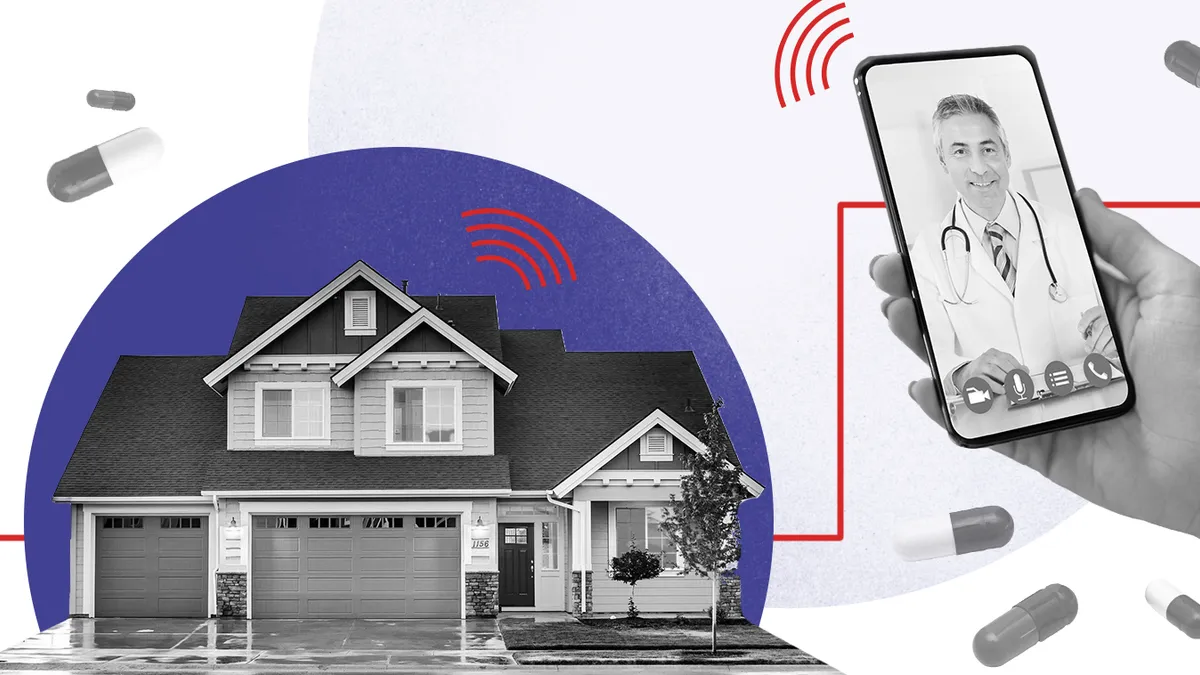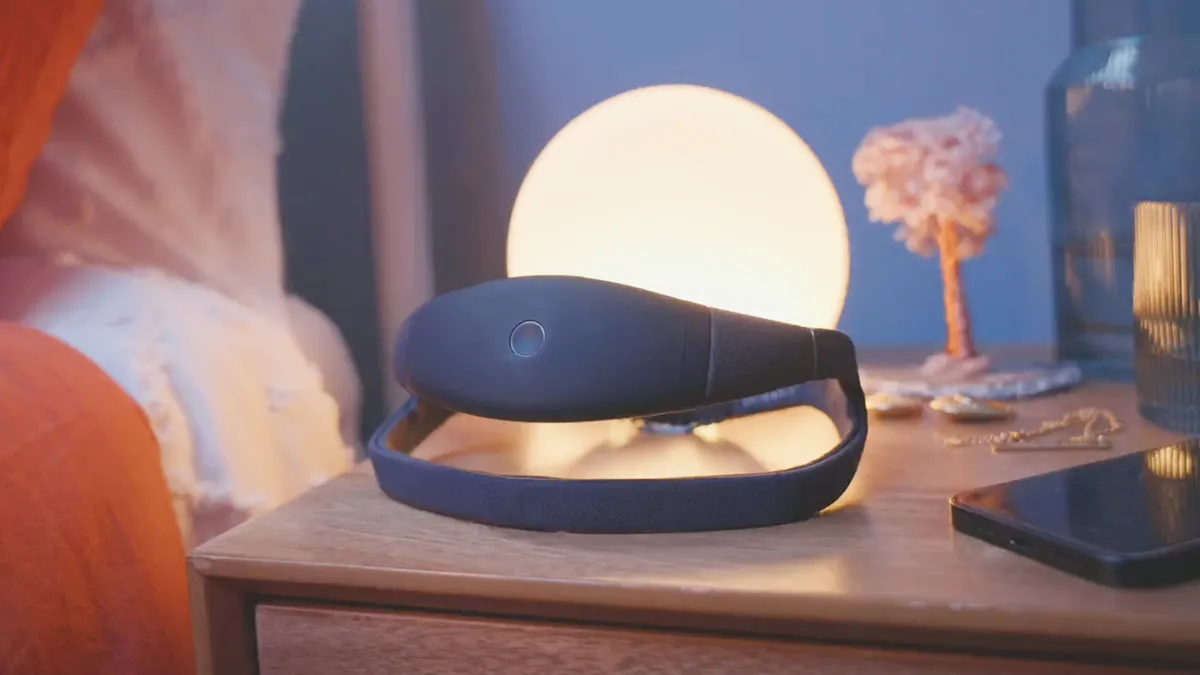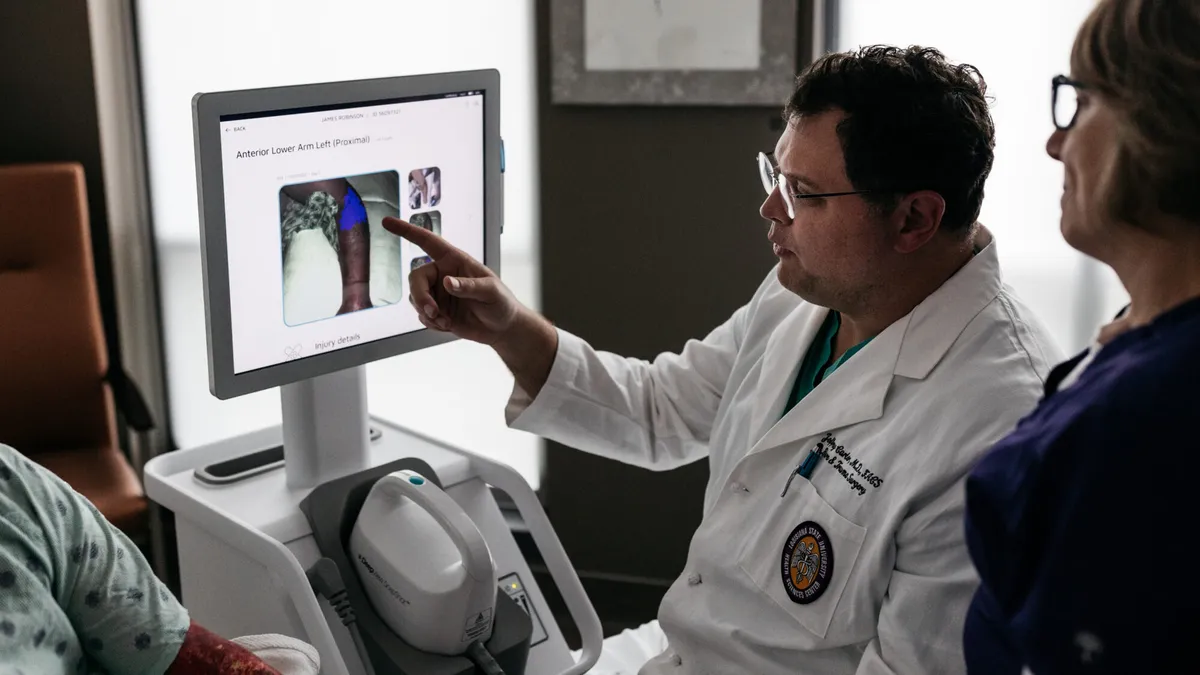One business bright spot of the coronavirus pandemic has been skyrocketing use of telehealth as patients stayed home and out of doctor offices, benefiting virtual care firms like Teladoc.
The boom has rippled out to makers of remote patient monitoring and wearables like continuous glucose monitors and insulin pumps, where devices are utilized to either deliver basic care or monitor patients and collect data. And while the explosion in use is likely to stabilize, experts say the healthcare landscape will be permanently changed post-pandemic.
Diabetes players Dexcom and Insulet both projected business growth and market expansion for this year during presentations at the J.P. Morgan healthcare conference.
While both companies are smaller than device industry leaders like Abbott or Medtronic, which have diabetes products of their own, Wall Street analysts are bullish on their prospects.
Capturing growth in CGM markets
Remote patient monitoring has been one of the top telehealth offshoots to see substantial growth amid the shift to virtual care, and Dexcom has performed well over this time. The CGM company’s stock price has grown by about 53% in the last 12 months, jumping from $235.06 to $362.55.
CEO Kevin Sayer said that the fourth quarter of 2020 is expected to be one of the company’s best quarters ever despite the pandemic’s hit across the U.S. and global economies. Dexcom projects revenue will land in a range of $2.21 billion to $2.31 billion in 2021, representing growth of between 15-20%,
One major shift for the company has been selling its CGMs primarily through the pharmacy rather than through a durable medical equipment channel. The change in strategy drops the price of devices, but revenue can be made up with increased volumes.
Dexcom’s goal is to ultimately have a mix of about 75% pharmacy sales, a mark it expects to hit by the end of this year. Analysts said that while there are revenue headwinds due to the shift, the company should ultimately fare better once those initial challenges are worked through.
As well as expanding penetration of the intensive insulin therapy, Type 1 and Type 2 intensive U.S. markets — all of which are under 50% penetrated, according to the company — Dexcom plans to expand to the Type 2 non-intensive market and expects a swell of growth in this space over the coming years.
"When this market goes, it’s going to explode," Sayer said.
Dexcom will also launch its G7 CGM system in 2021; although, Sayer did not give a specific timeline during the conference or a recent investor day.
Analysts were positive about Dexcom’s future, saying that 2021 guidance is likely conservative. William Blair analysts wrote that the company’s stock price is currently trading at 12 times their 2022 revenue targets.
But the analysts also highlighted competition from heavyweights like Abbott and Medtronic, noting both are "remain heavily invested in the space and can impact DexCom's growth by taking market share of existing or new patients into the CGM market."
Rival Abbott has also expects growth for the company’s FreeStyle Libre CGM products, which have been a revenue driver for the company.
CEO Robert Ford said during his conference presentation that Libre had a "spectacular year," driven by the company's focus on lower costs that appeal to the mass market as opposed to a costly product and more niche-market approach.
And while the U.S. launch of FreeStyle Libre 2 is just about four months old, Abbott is already planning for a launch of Libre 3. The new product’s success should come by its lower cost, which “has historically been a selling point over competitor devices” like Dexcom, J.P. Morgan analysts wrote.
Modernizing insulin delivery
Insulet, which sells the wearable insulin pump Omnipod, similarly saw a boost in business as patients further embraced virtual care. The company ended 2020 on a high note, with expectations that revenue will grow by over 20% for the fifth straight year.
CEO Shacey Petrovic said that the company benefited from patients looking to digital-based systems throughout the pandemic, a trend she expects to continue.
Much like Dexcom’s focus on under-penetrated markets for diabetes and CGMs, Petrovic said that the company’s success will be in expanding into new countries and further tapping under-penetrated markets.
In the company's current markets alone — the U.S., Canada, Israel and about a dozen countries across Europe — there are between 10 to 11 million potential patients able to use Omnipod, according to the CEO. Petrovic said that the potential also lies in the fact that about 95% of insulin-dependent patients require multiple, daily insulin injections.
"What we are doing is really growing the overall category as opposed to taking share from the smaller conventional insulin pump market," Petrovic argued. "Eighty percent of our new users previously were multiple daily injection users, and most of them would not have come to pump therapy if not for Omni pod."
The company did not provide specific 2021 guidance, but Petrovic said Insulet plans a product launch of its Omnipod 5 in the first half of the year. J.P. Morgan analyst Robbie Marcus wrote that the Omnipod 5 would be "one of the most meaningful product launches in the company’s history."
After expanding into five new countries last year, Insulet plans to expand to Turkey and Australia in 2021 and launch its Omnipod Dash system in Canada next week, according to the CEO. Insulet also has market expansion capability in the years to come.
"We should continue to see launches in new countries further out across APAC, Eastern Europe, and the Middle East, and if these go well, this sets the company up well for beats in the out years," Marcus wrote, picking Insulet as a top small-cap company to watch in 2021.




















